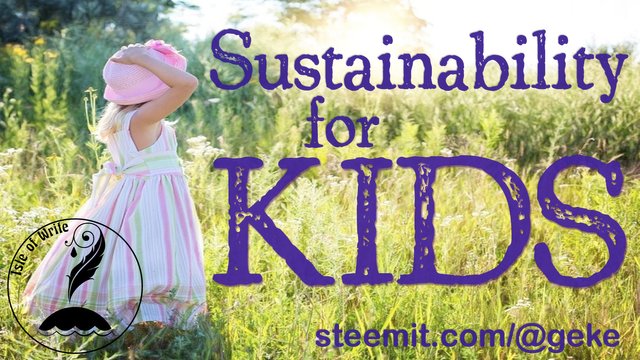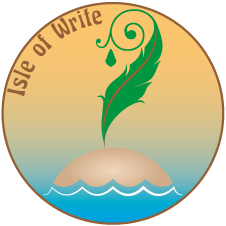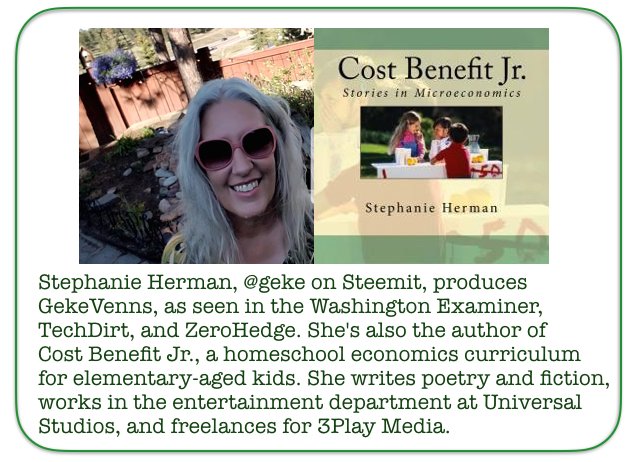Sustainability for Kids: consumption

Now that the holiday season is winding down and we're done power-shopping for another year, this might be a good time to explore sustainability. Kids sometimes know the idea of sustainability better as “environmentalism,” and that's one aspect of it, but sustainability generally just means living in ways we can easily maintain.
We can't power-shop all year long; that's not sustainable for our bank accounts. And we can't power-consume natural resources forever. That's not sustainable, either.
One reason sustainability has become an issue is because our modern society is drowning in the opposite of sustainability: consumerism. It's not that we need to police what people buy. Everyone should be free to consume what they want. But it's good to understand why our society tends to consume unsustainably, and to explore some things we can do voluntarily to change our own behavior.
A big hint that our culture is leaning heavily toward consumerism is the fact that the Container Store, “clutter coaches,” and the show Hoarders exist. Owning too much stuff can be a problem for us these days, and that isn't sustainable, either: there's only so much room in our homes to store it all.
But “happiness through consumption” seems to be our modern-day motto. And this is a motto we've learned.

We first learned it right in our own home: the suggestion we all heard growing up to “clean your plate.” Eating is also known as “consuming,” and we consume in the economy when we buy something. There are many distinctions to be made about consumption in the field of economics, but basically, consumption is the opposite of making something (production).
Shopping, then, is an act of consumption.
And our warm fuzzies involving consumption in the economy are the result of another set of lecturing parents: politicians have encouraged us for decades to consume for the good of the economy and for the good of our neighbors. We tell ourselves that buying things helps other people. But that idea ignores a bigger picture. The study of economics shows us that saving our money can actually be more helpful to the economy than spending it.
In fact, the words below are synonyms for the word consume:
deplete
use up
take
devour
expend
ruin
eat
It’s true that human beings have to use things up to survive, but it’s the constant nudge to consume first and foremost that’s threatening sustainability. And that nudging started with a PR man named Edward Bernays, his uncle Sigmund Freud, and a marketing campaign for cigarettes patterned after war propaganda. We'll explore that next time.
This article is one of a series I'm writing for the 30 Day Writing Challenge hosted by @dragosroua. If you want to join, write on a topic that interests you or that you'd like to learn more about and use the tag #challenge30days. As Dragos says, "The key word sequence here is: "write every day."
Interested in a relaxed place
to kick back and chill
with other writers and creative types?
Check out The Isle of Write by clicking below!


Your writing here is potent, and it is nicely supported by your animated gif that turns "BEAUTY" into "BUY" and "EAT". Makes a deep impression on me this morning, as I wrestle with my own consumption patterns, and my own tendency to draw magnetically toward external beauty. Really, I know that a deeper satisfaction comes from my drawing toward inner beauty, and inner satiation (satisfying the innermost desires), and working to cultivate that inner beauty in myself and others.
Yes, and I see how important it is to understand and to model healthy consumption for today's kids. Sustainability is one side of this, and another side is: well-being. Right now, my family of five is overwhelmed with Christmas sweet treats, for example, and what do we do with all the abundance of sugar? Do we indulge in the sweetness of life? Do we treat each item as a treat, appreciating the tasty morsels alongside a healthy amount of food that nourishes the kids? Do we discard the sweets entirely, and focus on food that helps them to grow? Somewhere in there is a delicious balance that helps us to be safe, strong, and happy, living well.
Thank you so much for reading @cabelindsay! The main point I'd like to get across isn't that consumption is bad, but that over-consumption or consumption before production can lead to problems. Hopefully that emphasis will come out more as the series goes on. So I wouldn't say Christmas sweets are necessarily bad. But eating them should be secondary to more productive activities. The consumerism I'll be writing about in this Sustainability for Kids series has come about primarily because government economic policies have taught Americans just the opposite: consume first and foremost for the good of the country.
#truth. Thanks for your specificity, regarding your message, and I agree with you that there's a societal pressure to buy, buy, buy, because of the "More is better" attitude, and this illusion is worsened by public policies, big business, advertising... Thankfully, Steemit is working well to dissolve this illusion, by bringing light to the issues, and bringing freedom through free thinking. Yeah, I see consumption as a natural action, so I'm really talking about a specific "heaviness" of over-consumption being an issue for our family, and for me. I'm working on it inside myself, and seeing that over-indulgence has many angles. I'm thinking there's a remedy for this: "enoughness." Affirmation: I am enough. I have enough. We're ok just as we are. Thanks for inspiring me and allowing me to think out loud.
Oh, thank you for sharing your thoughts. There's a section in my economics book for kids on Food Economics that addresses some of what you describe, and one solution for over-consumption, especially as it relates to food, is the idea of marginal utility. With each bite we eat (the last bite is the marginal one, out at the margin) our utility goes down because we're getting fuller. The first bite of cake tastes wonderful but the 100th (latest marginal) bite of cake would nauseate you. That's a function of diminishing marginal utility or diminishing marginal returns. Once kids understand that function, it changes how they perceive consumption.
Jeeze, that's a great life lesson right there. Thanks, I'll run with that! Thinking I'll introduce the idea right now, as I'm about to sit down to lunch with the kids. I might change the words from "Marginal Utility" to something more kiddie, if I can think of another expression. "Less is More"? "First bite is the best bite"? Hm. I'll keep searching.
OK, we had the talk. Our 8-year-old listened really well, and I'm not sure if the other two kids (5 and 3) grasped it. Basically, I told them the first bite may be most rewarding because it satisfies hunger, and fills that craving for adventure. The 100th bite is a good reminder to check-in and assess what's enough. We also talked about blessing up the first bite and eating that one slowly to really cherish it, taste it, experience it.
These are wise words! Sustainability is so important. I think people are so overwhelmed by all the news and data that they just punt and continue to do what they have always done. But everyone doing a little to reduce waste each day makes an enormous difference. I will check out the 30 day challenge!
I like the focus of the 30 day challenge on one topic. But, it does make posting any fiction or poetry in January a bit more challenging!
Ha ha, well maybe you need two concurrent challenges. But I would personally sweat bullets!
I love the idea of teaching children about economy and how it all works in real terms.
I love what you wrote about consumerism and the synonyms with the word 'consume'.
Are you able to offer a model of modern thinking for children that I can perhaps teach to my children and prepare them for a more sustainable economy of the future?
I have so many questions for you also. Perhaps we could do a guest post with you answering some of my questions or even do a video interview at some point which we can post up on D.Tube?
Thanks.
[email protected]
Hello @jasongrant and @geke,
I have used this sustainability game for a wide variety of age ranges. It is also helpful to provide the kids with a tally structure or template for tracking the numbers. As a sub-objective, it's interesting to note those who struggle with the impulse to eat as much popcorn as possible, as well as those who quickly learn that working together benefits all. Finally, I highly recommend a reflection activity for the students to note how their mindset changed (or didn't), and how this applies to the real world.
Today your teacher and I will be the producers and you will be consumers. In this game, our production and your consumption is limited to the amount of resources available.
Will It Last? Game:
You are in groups of 4 or 5. Write your Group letter (A,B,C, D, or E) and your name on your paper.
Let’s do a practice round together.
-We have produced enough popcorn (representing products) for each group to begin with 16 pieces.
-Each group member must take at least one piece during each round.
-At the end of the round the remaining supply will be replenished by half.
-At the end of 4 rounds, groups will compare how much they have left.
-After a discussion about natural resources and consumption, everyone will get to eat the popcorn and will get more to enjoy.
Hi Jason! I've written a book on basic economics for kids, but I am thinking of putting this series into an expanded format and producing a book on sustainability for kids that would teach them the economics of sustainability versus the underlying economic gov't policies that cause consumerism (which I'll get to later in this series). But sure, I'm available for any questions you might have. Are you on Discord? My Discord handle is @geke. If not, I'll pop you an email.
This post has been deemed resteem & upvote worthy by your friendly @eastcoaststeem ran by @chelsea88 (not a bot)
Dear @geke,
This is a wonderful glimpse into the mirror of how our financial choices are reflected beyond satisfying desires or fulfilling basic needs. Along with this spot-on observation...
A big hint that our culture is leaning heavily toward consumerism is the fact that the Container Store, “clutter coaches,” and the show Hoarders exist.
...I will add the rise of 3 car garages and acres of self-storage units as indicators of the unintended impacts of embracing a consumeristic mindset. I look forward to reading more from this series!
I just discovered this series and would love to resteem them all, but some are too old. Can I have your permission to write a post about them?
Of course! Thanks for reading and I'm glad you like the series.
Excellent. Let me give them all a good read. Its a shame that we cant resteem older posts.
Upvote and resteem done.
Wow I didn't Know you had these its a lot to read...I'll catch up.
|/,,
happy new year friend have a nice day 2018 very nice photogeraphy thank for sharing sir Follow, upvote and restreemed your post.